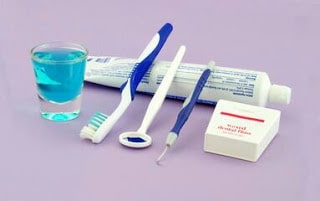Share this post
Should I brush my teeth before or after rinsing with mouthwashes?
Most mouthwashes and oral rinse usually contain chemical or drugs which are meant for treatment action/therapeutic uses or preventive measures such as mouth odor, prevention of dental caries, refreshing of the mouth, etc.
Although most commercially available mouthwashes contain flavoring agents that make the mouth feel clean. The flushing action may loosen food debris, but it will not dislodge or remove dental plaque. Some mouthwashes have bacteriostatic or bactericidal effects, but this is only a temporary action.
There has been a trending subject for every individual including dental professionals. Many people don't pay too much attention to Brushing, flossing, rising, and other methods.
Unfortunately, a quick scrub before you rush out the door will not do much to preserve your oral health and prevent cavities. Proper routines take a little more care, like knowing whether you should use mouthwash before or after you brush. But first, a few basics.
What is Mouthwashes?
Typically mouthwash is an antiseptic solution that helps to reduce harmful microbes in the mouth (Usually recommended by a dentist). Most mouth rinse comes in liquid form that people gargle their mouth with to help clean teeth, prevent infection, and freshen breath.
Physicians or clinicians might also recommend some rinses as an anti-inflammatory or anti-fungal solution. In most cases patients use mouth rinse as a saliva substitute, to help neutralize acid production in the mouth and counteract the effects of xerostomia (dry mouth). Mouthwash is also commonly known as an oral rinse or mouth bath.
Why Use Mouthwashes?
The most common use for commercial antiseptic mouthwash is at home oral hygiene. Using mouthwash daily is a good way to maintain better oral health and eliminate bad breath. It effectively reaches areas of the mouth where the toothbrush and dental floss can’t—the back of the throat, inside of cheeks, and between teeth.
Anti-plaque rinses specifically eliminate bacterial plaque. Anti-cavity mouth rinses contain fluoride to help prevent dental decay.
It is important to know that mouthwashes and rinses should be used only to complement brushing not to replace it. Examples of mouthwashes and rinses are oral B. Mouthwashes, Listerine, saline solution, diluted hydrogen peroxide, etc.
When to Use Mouthwashes
How to Rinse with Mouthwashes
Just as with brushing and flossing, how you rinse your mouth is also important. Here are some steps to follow:
- Start with about 20ml (don’t drink right from the bottle).
- Pour it in your mouth and swish around for half a minute.
- Take in a deep breath and tilt your head back.
- Gargle and do it as slowly as you can.
- Tilt your head forward, take in another breath, and swish once more.
- Do not swallow, but spit rinse into the sink.

Isreal olabanji a dental assistant and public health professionals and has years of experience in assisting the dentist with all sorts of dental issues.
We regularly post timely and trustworthy medical information and news on Fitness, Dental care, Recipes, Child health, obstetrics, and more.


